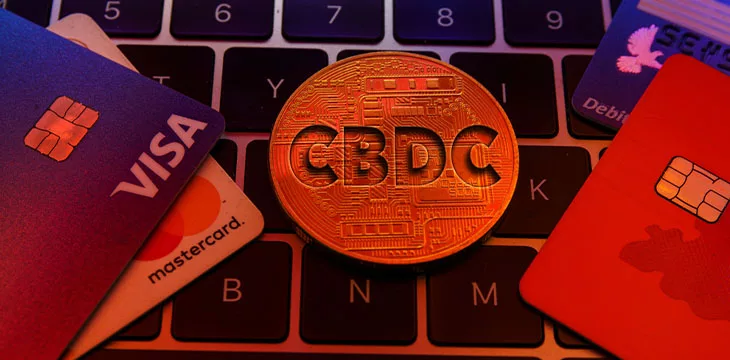|
Getting your Trinity Audio player ready...
|
South Dakota has joined Florida and Indiana in opposing the use of central bank digital currency (CBDC), passing an amendment to its Universal Commercial Code (UCC) that explicitly states that a CBDC doesn’t qualify as money in the state.
The South Dakota State Senate passed Senate Bill 58 (SB58) on Thursday, bringing the state closer to officially opposing a digital dollar before it even launches. SB58 was first introduced in the Senate by David Wheeler, the chair of the Committee on Commerce and Energy, at the request of the South Dakota Department of Labor and Regulation.
The bill targets the state’s UCC, a set of laws governing U.S. transactions. While not a federal law, the UCC is accepted nationwide and offers uniformity to business transactions in any state.
Currently, the UCC doesn’t define money in South Dakota. SB58 sets out to change this to exclude a CBDC.
Under the proposed changes, the UCC defines money as “a medium of exchange authorized or adopted by the United States or a foreign government. The term includes a monetary unit of account established by an intergovernmental organization or by agreement between two or more governments. Money does not include any central bank digital currency.”
The bill received overwhelming support, with 29 Republican Senators voting in its favor and only two Democrats voting against it, in line with the partisan take on the digital dollar.
With the vote, South Dakota joined Indiana and Florida, which have also amended the UCC to fight against the digital dollar. This is despite the Federal Reserve repeatedly saying that it has not made any decision on whether to pursue the digital currency.
More significantly, amending the UCC doesn’t rid the state of the digital dollar. All it does is remove the CBDC from the “money” bracket. In effect, residents of South Dakota can still choose to make payments in the CBDC if both parties are willing to use it.
Carla Reyes, who teaches at the Southern Methodist University’s Dedman School of Law, demystified the UCC amendments last year, noting that all they do is place the CBDC under a new category—general intangibles.
“I could still buy a computer using CBDCs if that’s what they wanted me to pay in. The UCC doesn’t have the power to ban people from using any type of exchange. That’s not what it does,” she told one outlet.
Other legal experts concur. University of Pennsylvania’s Andrea Tosato noted that any federal law on using a digital dollar would override all these state laws.
Despite the amendments to the UCC being relatively toothless in prohibiting a CBDC, South Dakota joins ten other states that have declared CBDC is not money. They include Nebraska, Tennessee, Wisconsin, South Carolina and Missouri. It’s the third after Florida and Indiana to pass laws to amend the UCC.
Alabama has also been the most aggressive critic of the digital dollar. The southeastern state has passed legislation prohibiting residents from accepting the CBDC or participating in the CBDC trials.
While the UCC amendments may not completely keep the CBDC away, they could prove a significant impediment if more states sign up. The leading Republican presidential candidate, Donald Trump, has also vowed to quash the “very dangerous” CBDC if he resumes the seat he lost three years ago.
To learn more about central bank digital currencies and some of the design decisions that need to be considered when creating and launching it, read nChain’s CBDC playbook.
Watch: Finding ways to use CBDC outside of digital currencies

 02-21-2026
02-21-2026 




